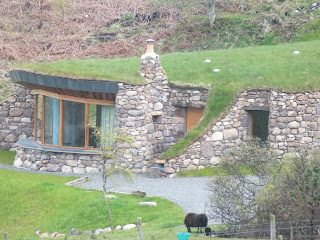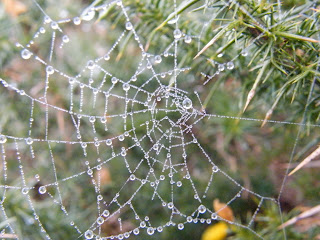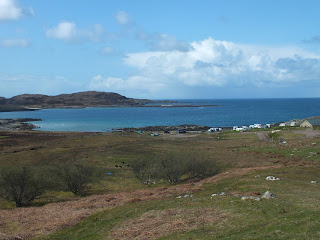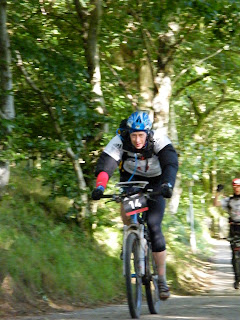Naturally Mindful discusses the role of nature, the outdoors and our environment as a whole in our lives. From countryside walks to pets, rock climbing and mountaineering to meditation all can have a part to play in ensuring well-being. Connecting with everything around us and the role and practice of mindfulness , being awake to every moment is key to our future.
Monday, 3 December 2012
Ideas of John Milton
Sunset on Walney
 |
| Sunset, Walney Island |
Yet this is an island with fantastic beaches which host national and international kite and windsurfing competitions. An island with two large nature reserves, one managed by the Cumbria Wildlife Trust, the other the RSPB and Natural England. An island with a strong community, new schools, farmland and a golf course.
But this is also an area with a history of industrial work and one where many retired workers live, whether in terraced and semi-detached homes or in one of the many residential caravan and prefabricated home sites across the island. Many residents take regular walks, using the extensive footpaths and tracks which are traffic free. So while the statistics may reflect ill health. This may be related to working lives rather than current activity.
Appreciating the stunning views across the Irish Sea or over the mountains of the Lake District, walking, observing the many seals, seabirds, waders and other wildlife are all integral to a mindful approach to maintaining health and improving wellbeing. Reflect on your own engagement with nature, do you appreciate the sunset, the smell of a seabreeze, the sound of grass swaying in the wind? If so then try to find more sense connections and use them as part of your daily routine.
Wednesday, 28 November 2012
waking at night
 |
| Tarn Haws by day |
Night time sharpens, heightens each sensation, Darkness stirs and wakes imagination,
Silently the senses abandon their defences, Slowly, gently, night unfurls its splendour. Wait, Stop! This isn’t an opening verse, well it is really, one from Phantom of the Opera, but it’s true night time does wake our imagination, we go into survival mode, pausing at sounds, wondering what just fluttered past, a bird, a bat, a .....? But what if we let go, abandon our defences, then what? What really comes to life? Is it just our imagination or is there a whole world out there, one we rarely see. That acre of woodland contains more life than the population of the town we live in, the nearby city, maybe even the whole country. Yet sometimes because we can’t see it, we forget, and when we forget we stop caring.
So abandon your defences, waken your imagination and come with me as the woodland unfurls its night time splendour.
The stile squeaks as we pass through, immediately the dog’s ears go up, its nose sniffing the air, straining against its leash. Turn off the torch, let your eyes settle into the darkness, yours ears prick as the rabbits rustle through the leaves to their holes. An owl hoots, adding to the mystery, we walk slowly forward, anxious not to slip. Don’t just put your foot down, lift it, lower it, gently feeling underfoot before committing your weight, anxious not to crush the shell of the snail crossing in front of us, or snap the twig alerting others of our presence.
Notice the smells, the damp grass, the bark, and something stronger, here near the hole in the hedge. Scratch marks coming through, blades of grass flattened where the badger passed. Then a snort, we stop, terrifyingly still, what is it? The badger coming back? But there’s more, rubbing, scratching against a tree. We move forward, steps moving away. Touching the bark we find hairs caught in the rough surface. At the next tree a long strip of bark pulled away, silver and smooth on one side and brown and rough on the other, pulled by the deer rubbing its antlers and then its itchy back against the tree. Hands flat on the trunk an insect runs over our fingers. Each time we move worms come to the surface attracted by the dew we knock off the grass.
Fluttering nearby, if we had a bat detector we’d know just what it was. There are lots of bats here in this wood, the pipistrelle helping us against the midges, eating thousands every night, while the long eared bat sits waiting for the sound of the ladybird on the flower stem, the ‘water bat’ or daubenton catches insects on the surface of the pond while the clever ‘natterer” waits for the fly to be caught in the spider’s web and eats them both!
All this happening around us and yet we can only feel it, hear it, understand it’s presence. If only we can remember it during the day, we might watch where we walk, what we leave behind, no litter only footprints, no damage, only memories.
Thursday, 25 October 2012
Mindfulness in Nature - slow works
 |
| Great how the changing seasons makes things stand out |
There were many visitors, walking briskly along the paths, swapping from one hide, one viewing space to another. If only they'd taken the time to pause. Why make an effort to visit somewhere, to do something, if you don't give it your full attention?
The people who overtook me on the path missed the vole that ran across my feet. The ones visiting each hide for 5 minutes missed the marsh harrier that landed in the reeds while his more attractive and larger mate sat on a branch a short distance away, or the egrets flying overhead, the red deer sat in the trees and the shoveller sifting the water for food.
In order to be mindful we need to pay attention. To what is going on in our minds and bodies as well as what is happening around us. When we go outside, with the intention of appreciating the natural environment we are all part of, do we give ourselves the time to stop, to engage, to notice?
What about everyday life? Does the quest for faster download speeds, fibre optic broadband, wi-fi this and 4G that really mean we'll get more out of life? How about slowing down and noticing? Do gadgets really save time or just fill space with something else?
Try just pausing, breathing, looking out of the window, spotting something you haven't noticed. Try living instead of distracting!
Tuesday, 23 October 2012
More 'Gift of Small Things'
 |
| colours changing |
Without wanting to sound like Julie Andrews in the 'Sound of Music', the wave of my partner, shuffling my feet in the fallen leaves, the copper coloured fern stems, the yellows, greens and reds of the trees, the richness of the berries, the sparrow on the fence, the heron in the stream, these are a few of my favourite things - the gifts of today. By the way, they're all free, you simply have to look.
Monday, 22 October 2012
Mindfulness - Gift of small things
 |
| Spectacular colours in the Ambleside car park |
Try looking for things that make you smile, whether it is the dog walker with a reluctant Bassett Hound, the children playing on the rope slide, the spinning of a falling leaf, there are lots of small things that are out there and they can contribute to our sense of well being if only we're awake to notice.
Thursday, 18 October 2012
Food for Hearts!
 | ||
| Autumn Mist |
I was reminded that we need different food. Food for the intellect, which we get from 'lifelong learning', reading, conversation. Food for the body, healthy eating and physical exercise. But that we also need food for the heart, that which motivates, sustains our values, enables us to live with equanimity, strong enough to deal with the difficult and painful, open enough to appreciate beauty, kindness and our interconnectedness with all life.
Later with my partner, we talked about the space meditation gives us, not to solve problems or 'think' things through (though that is of course possible), but to give us the ability to 'quiet' the turmoil we constantly have in our minds.
I thought of both discussions while walking this morning. It started in rain, ended in bright sunshine. The autumnal colours, deep reds, rich oranges, young swans still with adolescent plumage flying overhead, the sound of twigs snapping, the smell of wet leaves. Difficult to think of work, issues etc when using all our senses, engaging fully with the life around us. Also how important it is to have friends, family or colleagues that help us engage fully, feed our heart connection. In Africa a common greeting is 'What does your heart say today'?
What is your heart saying to you?
Sunday, 14 October 2012
Mindfulness in the City
 |
| Stunning architecture in Prague, Czech Republic |
There are wide tree lined avenues, lots of people in the city with dogs (but no dog mess seen!), a wide river and hills (with castles). Looking at the architecture it is interesting to reflect on how mindful the citizens who walk past everyday are of what is around them. Also to reflect on the changing views of what appears to be a deeply Christian country, with churches, artifacts such as statues in squares, on buildings and bridges.
 | ||
| Old and modern, statue on bridge with tourist balloon in background |
6 IATC Post Conference Thoughts
 |
| Dawn, Hruba Scala |
Sunday, 30 September 2012
Czech Conference 2 - 6IATC begins
The 6th International Adventure Therapy Conference held at Castle Hruba Scala in the 'Bohemian Paradise' or 'Rock City', an amazing area of sandstone pillars and outcrops shaped by millennia of rainfall, wind and human erosion, all in a forest setting, takes place every three years in a different region.
The conference attracts delegates from all around the world including Taiwan, Australia, the USA and Canada, Spain, Israel, the UK and many more. All with an understanding of the therapeutic benefits of nature and the outdoors and a desire to learn from others, share ideas and promote the awareness and use of adventure therapy in all its forms.
At such an event it's important to remember that being mindful includes caring for your own needs. So it has been important to establish a blend of exercise, reflection, study and conversation that is balanced, promotes learning, allows engagement but includes space for enjoyment and fun, just as any adventure activity would. Our lives too should have balance, perhaps with a similar blend, after all we are constantly learning, working, sharing even eating and sleeping. Being mindful means being aware of how much we do, whether too much or too little and whether we have the resources to manage this, responding to life and the issues that come along. In doing so it is important to remember to take the opportunity to engage with nature, whether that means a mountain trail or gardening on the allotment, kayaking or painting, is up to you. The key is to make sure we have time for what the poet Wordsworth called 'Tranquil Restoration'.

Czech conference 1
Travelled to the Czech Republic for the 6th International Adventure Therapy Conference, held in the spectacular setting of castle Hruba Scala in the 'Bohemian Paradise' or Rock City.
Interesting experiences on the way here. Trains late, people in 'quiet' carriages who don't get the concept of mobile phone use not being allowed. 'But it's my work phone and I'm clearly very important because I need to keep reminding my colleagues I'm on the train and they can ring me if there is something important that can't possibly wait or heaven forbid be done by them!'
Sorry, shouldn't rant, that's not what this blog is for, but it helps set the scene. Especially when the delayed trains were followed by 3 hour flight delay, arriving in Prague late at night, in the pouring rain.
So here is the mindful input. In my hotel room I realised I needed to relax so went for a short walk to relieve some physical aches before settling for a short meditation including being aware that all the problems had been shared by all travellers that day due to very bad weather and weren't aimed at me personally!
The next morning the sun was shining and after a run to get rid of cobwebs I went to the square by the opera house for breakfast and coffee. Here I was able to sit, be in the moment, appreciate the sun on my face, the smiles on people's faces, the antics of tour guides with colourful umbrellas, electric cycles, adults on push scooters going very fast through the crowds, the shouts of market traders and the gentle buzz of a city coming to life. A great reminder that being in the moment, engaging one's senses, being open to experiences is a great way to feel good, physically, mentally and emotionally.
And so on to the conference and the opportunity to meet old friends, make new ones, learn, share and be inspired, oh yes and be a little pensive as I'm presenting two papers and chairing part of the conference!


Tuesday, 11 September 2012
Look on the bright side
 | |
| Rainbow over Loch Tay |
We all face issues in our lives - illnesses, pain, family and friends, work and finance and yes mindfulness can help with all of these, as can being in nature. The key is that this will only happen if it is an active process. Being in nature is great, if you are aware of its benefits constantly. Like friends and colleagues when the issues in life counter the resources we use to balance them, then we will either be overcome or by being active we can add more resources. Mindfulness in and of nature is an essential part of helping us be active, be 'in the moment', appreciating what else is in our lives; counterbalancing issues even momentarily. Just as the unexpected view of a rainbow makes you pause and appreciate the sun and the rain that creates it, so mindfulness in and of nature encourages you to look, to see, to appreciate the beauty around us and keep a perspective, a balance.
Monday, 13 August 2012
Tangled Webs
You may have heard the saying "what a tangled web we weave when we practice to deceive" and this has often been used to illustrate the importance of truth and simple communication. But we don't have to be trying to deceive, our whole lives are a tangled web, often with connections we don't see, aren't aware of.
Being mindful helps us not necessarily untangle, but certainly see the web, understand that everything in our life is connected whether internally, to our background, experience, family, education and much more, or externally to the people around us, our work, reliance on gadgets, texting, the weather, whatever.
When we learn to look at the web, we see the connections much more clearly, recognise the strong, the tenuous, what is able to support and what needs to be strengthened or disregarded.
Being mindful in and of nature allows us to learn from all other life too, that things change, often aren't perfect but can still be beautiful.
Monday, 6 August 2012
Castles, money, celebrity and health
 | |||
| Lindisfarne Castle, Northumberland |
The spirit of the Olympics , the work of volunteers and the support of the crowds reflects the true values we can have as individuals, while the greed of banks, the profiteering, high wage, bonus culture, money above all else attitude (just look at G4S, Banks, the damage caused by 'Big Oil' at the expense of our environment) doesn't. The ideals of a 'Big Society' laudable as they may seem are undermined by the large business interests behind them, such as SERCO taking over services that could be run by smaller charities if they were given the funding direct rather than the corporate 'top slicing' loved by the Government. The only way we will have a true legacy of the Olympics with improved health for all, is if there is grass roots interest in sport. Money should go to local authorities, schools and clubs to improve facilities and make them open to all. We should stop the craze for instant fame 'celebrity' status beloved of the media and focus on the determination and work shown by Olympic athletes. Forget the corporate image of sponsors and look at the dedication of our armed forces who've bailed them out. Forget the surgically modified bodies and look at the fantastic shapes of athletes. Once we start to believe in real people again, we'll be healthier as individuals and as a society and our 'sense of self' we be maintained by the reality around us, real people working for the best motives, helping others and protecting the places in which we live.
Thursday, 2 August 2012
Depression and death
 |
| Big views can lift your spirits |
Friday, 27 July 2012
Engaging with life
'Until we understand what the land is, we are at odds with everything we touch. And to come to that understanding it is necessary, even now, to leave the regions of our conquest - the cleared fields, the towns and cities, the highways - and re-enter the woods. For only there can a man encounter the silence and the darkness of his own absence. Only in this silence and darkness can he recover the sense of the world's longevity, of its ability to thrive without him, of his inferiority to it and his dependence on it. Perhaps then, having heard that silence and seen that darkness, he will grow humble before the place and begin to take it in - to learn from it what it is. As its sounds come into his hearing, and its lights and colours come into his vision, and its odours come into his nostrils, then he may come into its presence as he never has before, and he will arrive in his place and will want to remain. His life will grow out of the ground like the other lives of the place, and take its place among them. He will be with them - neither ignorant of them, nor indifferent to them, nor against them - and so at last he will grow to be native-born. That is, he must re-enter the silence and the darkness, and be born again.'
― Wendell Berry, The Art of the Commonplace: The Agrarian Essays
Thursday, 26 July 2012
Mindfulness in Action
 | ||
| Poster for tonight's event, exhibition open until end of August |
Thursday, 12 July 2012
Raining
It's raining, the grass looks lush, vivid green. The birds strut across the lawn finding worms, all focused on food not each other. The corrugated iron roof has a symphony playing as the raindrops splash creating rippling rings in the puddles on the roof, the flowers in the pond are coming to life. Being mindful means seeking out the pleasant! There's so much to see, being in nature means being in the moment, so many fleeting glimpses, activity everywhere regardless of the weather. By watching, seeing, we can for the moment appreciate beauty, harshness, the world around us, that we are part of, no matter what else we're dealing with.
Essence of Mindfulness
 |
| The tide goes out in Morecambe bay |
Tuesday, 10 July 2012
 |
| Connecting with Nature - a group in our local park |
Tomorrow we'll be joining friends and colleagues at the annual UK Mindfulness Trainer's Network meeting near Crewe. We'll be discussing developments in practice including the success of the UK Mindfulness Teacher guidelines established by the network.
http://www.cyclistno1.co.uk/features/rides/lejog-off-road-mountain-biking-therapy.htm
Wednesday, 27 June 2012
All in the mind
Wednesday, 30 May 2012
Sense of Place 8
 | ||
| Kayaking on Loch Lomond |
 |
| The loch was at times a bit choppy |
Sense of Place 7 - sea eagles
 | ||
| White tailed or Sea Eagle |
When we get so involved with our everyday existence do we need to adopt specific practices to help us maintain a connection with the natural place around us and if so what form do these take?
Sense of Place 6
 |
| Our campsite launch area |
Sense of Place Tour 5
 |
| Final views as we leave the Summer Isles |
 | ||||
| Seal watching |
Tuesday, 22 May 2012
Sense of Place Tour 4
 |
| Ecohome |
Sense of Place Tour 3 - Summer Isles
 |
| Bring on the elements! |
Sense of Place Tour 2 - Summer Isles
Thursday, 10 May 2012
Sense of Place Tour 1 - Loch Ness
Tuesday, 24 April 2012
Sense of Place Tour
Next week, we're going on tour. Exploring the N.W. Highlands of Scotland on foot and by kayak. Talking to the people we meet and discussing how we connect with, make, have a sense of place. Is it the scenery, the people, the wildlife, the space? We'll be reporting back with regular updates to this blog as well as producing a visual record of our experiences.
Saturday, 14 April 2012
naturallymindful: Reflection
Thursday, 12 April 2012
Reflection
Thursday, 5 April 2012
Wednesday, 4 April 2012
Being mindful
"This is what I want to learn: to notice but not to analyse. To still the part of the brain that's yammering. 'My god, what's that? A stork, a crane, an ibis? - don't be silly, it's just a weird heron'. Sometimes we have to hush the frantic inner voice that says 'Don't be stupid', and learn again to look, to listen. You can do the organising and redrafting, the diagnosing and identifying later, but right now be open to it, see how it's tilting nervously in the wind, try to see the colour, the unchancy shape - hold it in your head, bring it home intact".
Tuesday, 3 April 2012
NHS Video
http://www.youtube.com/watch?v=_YdjDXT37RU
multi-tasking and mindfulness
Friday, 30 March 2012
National Trust
But this isn't just about children. As adults we all need to recognise the value of nature for our own health and wellbeing, that of future generations and the need to protect nature in order to ensure a future we can all share in. Adults need to help children appreciate nature, enjoy it, benefit from it. Amazingly (not really!) it is cheaper to be in nature than in front of the latest games console, have a picnic rather than visit a burger joint.
We can bring to mind the way we engage with nature, what are the sights, sounds, smells that we enjoy, that make us smile? The things we remember from our childhood. How are we helping children have the same or better experiences (with modern clothing they don't need to experience being dragged around a cold wet hillside the way we may remember)?
Thursday, 29 March 2012
Panic buying fuel?
Surely if the Government is worried about fuel availability they should encourage us to be mindful of it. To drive slower, take fewer journeys, travel by cycle, run, walk, get the train. All the same messages that they should approach regarding the environment too - use less, for health - walk more, improve traffic - drive less. But no, instead we get buy, buy, buy and we all contribute more to the exchequer by doing so.
So if you are worried by fuel shortages, escalating prices, your health or simply want to save money then travel more sustainably, it's good for you!














